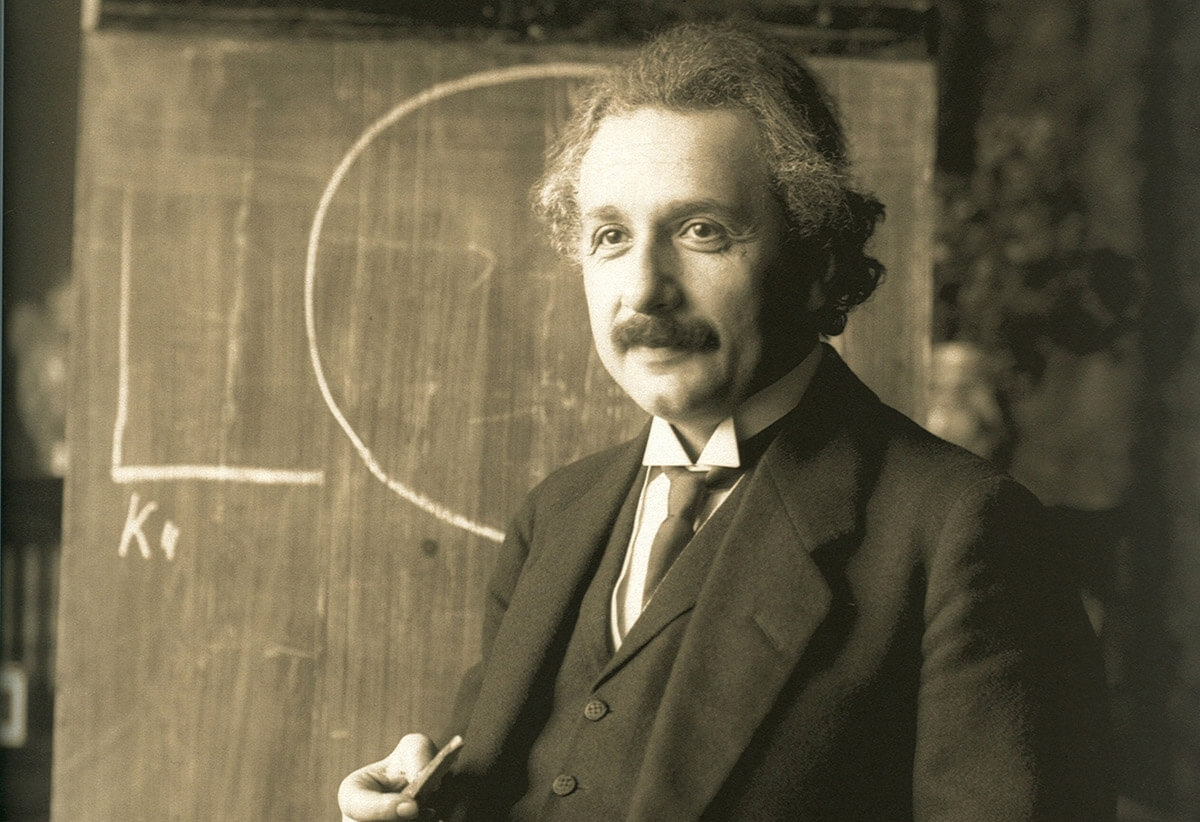World’s largest Einstein museum to open in Israel
The building will house 85,000 documents, Einstein’s Nobel Prize and the original theory of relativity

Albert Einstein during a lecture in Vienna in 1921. Courtesy of Wikimedia Commons
Israel’s government on Sunday approved the establishment of an $18 million Albert Einstein museum on the campus of Hebrew University, a school the physicist helped establish a century ago. When complete, the museum will house 85,000 documents, the largest repository of Einstein material in the entire world. It will also include Einstein’s Nobel Prize and the 46 pages of original notes he made in 1916 working out the general theory of relativity — complete with a grease stain on page 45.
The museum will take over the spot of an abandoned planetarium on the school’s Givat Ram campus in Jerusalem. The government will pay for about a third of the construction, with the remaining two-thirds coming from the university — including from major donors like Jose Mugrabi, the world’s leading collector of Andy Warhol paintings.
When Einstein crafted his last will and testament, he decided to bequeath his “manuscripts, copyrights, publication rights, royalties … and all other literary property and rights, of any and every kind or nature whatsoever” to Hebrew University. Einstein traveled the world raising money for the school, including on a 1921 trip to the U.S. with Chaim Weizmann, a fellow scientist, who would eventually become Israel’s first president. Einstein served on the university’s first board of governors.
After Einstein died in 1955, Israeli officials came to clean out his office at the Institute for Advanced Study in Princeton. They loaded up all of his papers, correspondence, photos, medals and other ephemera. The items were boxed up into big wooden crates and loaded onto a truck, then a plane, and then a van, ultimately traveling 5,736 miles to Hebrew University. There were police escorts along the way.
Einstein’s connection to Israel was so strong, he was asked to become the country’s president in 1952. He politely declined. “It is quite true that many a rebel has in the end become a figure of respectability, even a big shot,” Einstein later told a colleague, “but I cannot bring myself to do so.”
The Albert Einstein Archives, presently located on the second floor of a classroom building at Hebrew University, will move into the new building.
Einstein’s “legacy of excellence in academic research forms the very foundation of our university,” said Asher Cohen, the president of Hebrew University, adding that Einstein’s “scientific achievements, which changed the world of physics, continue to impact all of our lives, from lasers and nuclear energy to GPS and space travel.”
We’re going to build The Albert Einstein Museum in Jerusalem!
— Naftali Bennett בנט (@naftalibennett) October 23, 2022
A few hours ago the government of Israel approved building a one-of-a-kind museum dedicated to Einstein.
All his original papers, archives, the original note where he wrote E=mc^2! >> pic.twitter.com/R9DUw2gghw
A message from our CEO & publisher Rachel Fishman Feddersen
I hope you appreciated this article. Before you go, I’d like to ask you to please support the Forward’s award-winning, nonprofit journalism during this critical time.
We’ve set a goal to raise $260,000 by December 31. That’s an ambitious goal, but one that will give us the resources we need to invest in the high quality news, opinion, analysis and cultural coverage that isn’t available anywhere else.
If you feel inspired to make an impact, now is the time to give something back. Join us as a member at your most generous level.
— Rachel Fishman Feddersen, Publisher and CEO